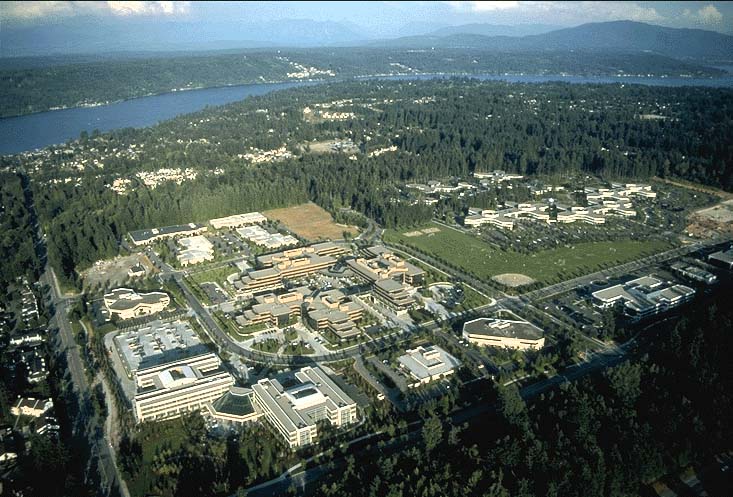When Microsoft first started, they operated out of an apartment, and Bill Gates took 60% of the business and Paul Allen took 40%. The reason for the 60/40 split was because Paul had another job and Bill was broke! Bill's investment was $910 and Paul's was $606. They were prepared for how quickly the demand for software would be, but they were not prepared for how much it would take for them to have it available. They thought that working out of an apartment with a handful of people could handle the orders, but they soon had to move their business and hire more people. About 50 other software companies started a year or two after Microsoft, and none of them exist today! Bill Gates says the reason is "we were in and we were first because we had been thinking about the stuff in a broader way than anybody else". Gates and Allen's dream was to have a PC on every desk, in every home. Many people thought this idea was as wild as the idea of owning your own nuclear submarine. What Microsoft knew they needed to do was to be able to produce a mass volume so that the prices would be affordable to individuals.
In 1980, Bill hired his Harvard roommate, Steve Ballmer, to be assistant to the President and oversee and run the business in a professional manner. This would free Bill up to work on the technical, creative side of the business. The personal computer business was taking off, revenues were doubling each year, and
it was predicted to be a billion dollar business by 1981.
In 1981, Microsoft signed a contract with IBM, with an advance of $500,000, to develop an operating system for IBM's PC's. IBM, thinking that money is in the hardware not the software, made the contract nonexclusive, giving Microsoft the rights to the software.
Bill Gates knew that the money would be in the software because the hardware (computers) were easy to clone, but software, MS-DOS, could not be cloned. Every time a PC or PC clone was sold, Microsoft collected a fee. The MS-DOS program was modeled after a system called 86-DOS, which Gates had leased, so Gates bought the system outright for $75,000. Microsoft later gained a fortune because of that deal. In 1995, they became involved with a new Internet strategy, MSN. And the MS-DOS system and subsequent programs, OS/2 and Windows, made Microsoft the largest software producer with $24.7 billion in cash on their balance sheets as of November, 2000.
Bill Gates is a ruthless businessman, wedging out the competition by undercutting their prices or buying up their businesses, making Microsoft one of the country's strongest monopolies. The federal government, after holding antitrust hearings, has proposed to break the software king into two companies. But, Bill Gates won't be stopped. He will continue to work on new technical strategies, like interweaving the Net with Windows; a way to have all the web-access systems work together. The "frontier" of computer technology will contine to grow, and Bill Gates will be there to lead the way.
|




